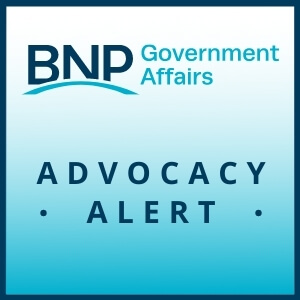Empire Center: Single Payer “Sticker Shock”
Blog Categories
March 17, 2022
A new report from the Empire Center for Public Policy details how expensive a single payer healthcare system would be in New York. The full report is available here.
The report notes that the New York Health Act (NYHA) would radically reform New York’s tax structure. The bill calls for a “progressively graduated” tax on both income and payroll; however, the exact rates are not specified in the legislation. This is, in part, because the bill sponsors are also unaware of how much revenue the state would need to finance a single payer healthcare system. However, the latest estimate by the RAND Corporation is that New York would need an additional $157 billion in revenue to operate a single payer system. By removing cost controls, this number could grow.
Raising this revenue would require the largest tax increase in history. The report estimated that, to raise the needed revenue, the top tax rate would increase to 36% — which would be three times the top rate in California, the state with the second highest tax rate. New York would become an extreme outlier in taxes.
NYHA advocates claim that while taxes would increase under the NYHA, premiums would lower, leading to a net savings for many New Yorkers. The RAND Corporation estimates that such a tax structure would mean 65% of New Yorkers end up saving money, 4% pay about the same, and 31% see additional costs. Although this may appear more progressive initially, the report notes that NYHA would add significant incentives for outmigration, especially among top earners and high-producing businesses. Losing top taxpayers would shift more of the cost burden onto middle and lower income families, eliminating the bill’s intended benefit.
In years where healthcare costs increase or state revenues decrease, taxpayers would face significant pressure and additional tax hikes to keep the NYHA system solvent.
Lastly, the report notes that the NYHA would cause concern for doctors and medical providers, who would experience income changes that may repel them from New York.
The report details the concerns that the BNP and employers have raised since the NYHA was introduced three decades ago. The NYHA would dramatically increase taxes for many businesses and families, create incentives for outmigration, and discourage medical professionals from practicing in our state.
Read the full report here, and take action on this issue here.
Related Posts
8.26.21 Advocacy Alert: Hotel & Commercial Conversion Bill Signed Into Law
In the final days of his tenure, Governor Cuomo signed the Housing Our Neighbors with Dignity Act (HONDA) into law. The law aims to convert “distressed” hotels and commercial properties into affordable housing options.
8.24.21 Advocacy Alert: Hochul Takes Oath; BNP Suggests Priorities for First 100 Days
Today, Lt. Gov. Kathy Hochul was sworn in as Governor of the State of New York. The Buffalonian takes the reins after Gov. Andrew Cuomo resigned, amid a storm of bipartisan criticism. Hochul will be the state’s 57th Governor and the first woman to hold the office.
Staff Spotlight: Meet Ann Brooker
Ann Brooker is our Manager of Member Engagement. Ann works to communicate the value of the Partnership to our member companies and build strong relationships within the Buffalo Niagara community. Learn a little bit more about Ann in this brief Q&A. Q: What is your background in/what type of work
8.10.21 Advocacy Alert: Cuomo Resigns, Hochul to Assume Office
This afternoon, Governor Andrew Cuomo announced his impending resignation, effective in 14 days.
Cuomo’s resignation comes after the Attorney General’s report that detailed sexual assault and harassment allegations from eleven women. After the report, Cuomo received nearly unanimous calls to resign from lawmakers and Democratic party officials. The Assembly Judiciary Committee was also in the process of conducting an impeachment investigation.


